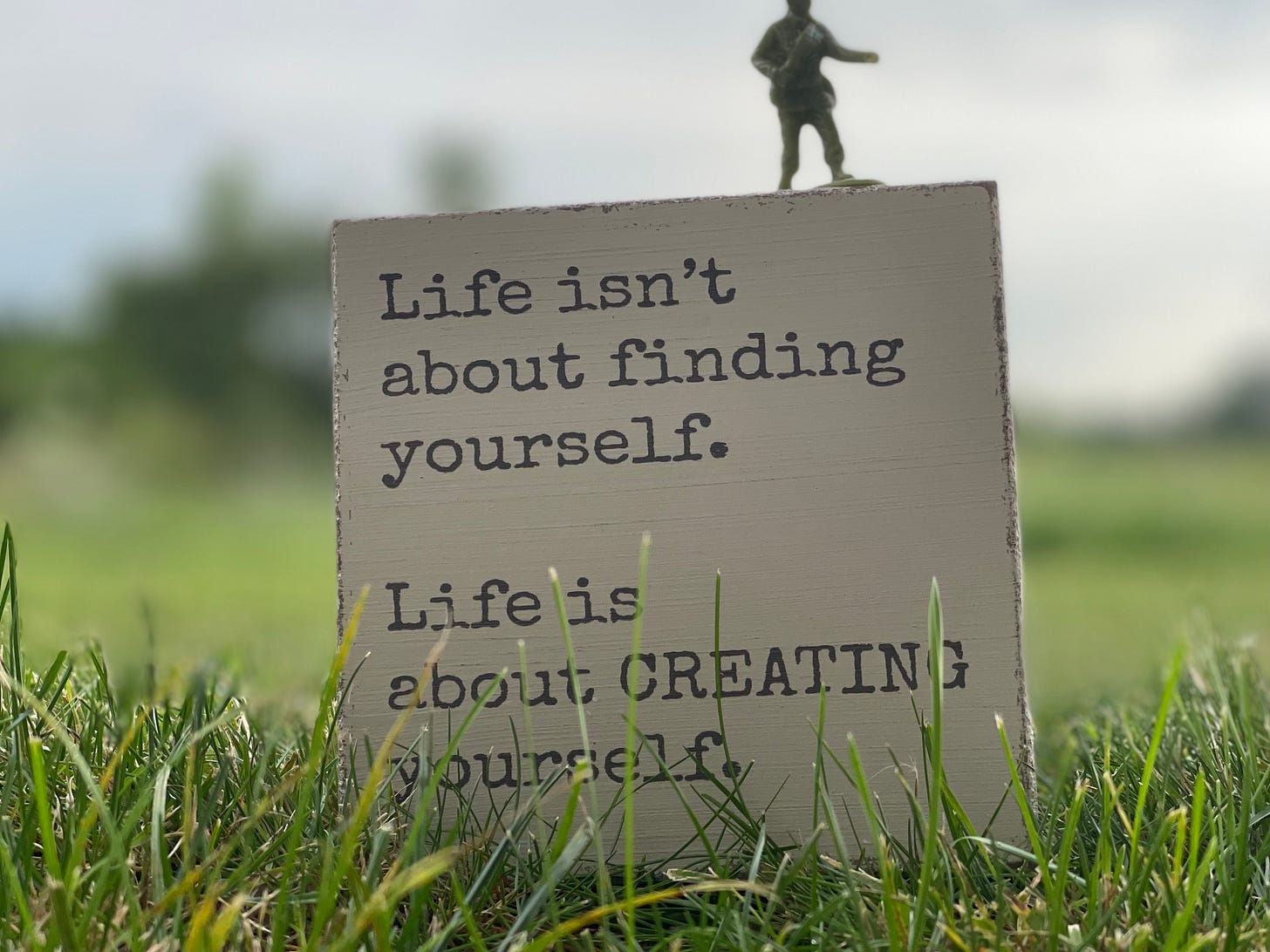On Joining the Army & Becoming Necessary
I didn’t mind hardship; what I minded was not feeling necessary.
When we leave military we scratch our proverbial heads and ask, “Now what?” We are both free and somewhat sad for it. Perhaps we have some clue of what might come next for us, but we are hesitant. We don’t know how to dress or act or talk or think so that others will understand us, or event want to. Most of us can play the part of civilian reasonably well, but underneath our civies (civilian clothes) we know we are still playing dress up and feel it to our core.
But we forget that we have been here before.
Anyone who remembers the early days of boot camp knows that those first days are filled with similar confusion and overwhelm, the sense of having made a huge mistake — albeit boot camp’s disorientation is much more intense and concentrated.
We did not become soldiers all at once. No, it happened to us a little bit at a time: Our was hair cut and our clothes (and dignity) were removed, replaced with camouflage and kevlar. Slowly, we learned to shine our boots, call back cadence, not walk on the grass, to fire our weapons, follow orders, salute the right people and all the things that make a soldier a soldier. Until one day we were suddenly soldiers. I remember staring into the bathroom mirror on graduation day, so sharp and proud and weirdly beautiful in my dress uniform, wholly surprised at the young woman staring back at me in the mirror. Who was she? How did she end up in a barracks at Fort Jackson, wearing these clothes, being this person? Later that day, I saw that same surprised look reflected on the faces of my parents, who came to watch my graduation. They marveled at how much weight I’d lost and the new person I’d become (all “yes ma’am” and “no sir”).
Why did I join? Why did any of us join? There are as many reasons as there are soldiers, but when I hear the stories, I sense a secret gold thread of courage in all of them. Whether you joined because the alternative was jail, or because you knew your domestic partner would likely hurt or kill you (and soon) or simply because you felt the siren call of adventure — all our stories are brave. That bravery, deeply personal and almost primal, kills me. I joined for the college money, but also deep down I knew there was something else out there for me.
Sebastian Junger wrote, “Humans don’t mind hardship, in fact they thrive on it; what they mind is not feeling necessary. Modern society has perfected the art of making people not feel necessary.” It takes courage to decide you want to feel necessary. Back then, at age 19 I sensed the life I was heading toward was, at its core, fundamentally unnecessary. And I wanted, more than anything, to be necessary.





